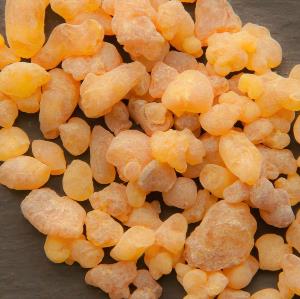

In Somaliland the difference between the survival of a community or its disappearance can be a matter of just a few dollars a year.
For those farming communities that harvest the country’s famous aromatic gums such as Frankincense and Myrrh a fall in international market price can be a disaster.
“In the past entire villages have disappeared when prices have dropped lower than anticipated,” says Zahra Osman, one of the Managing Directors of Beyomol Gums, part of the Neo Group, a company based in the capital of Somaliland, Hargeisa.
“These communities are often nomadic and the collection of the gum is very harsh and extremely demanding so the collectors will not go out of their way without being incentivised.”
Since 2000, Beyomol has been providing the right incentives. By building up levels of trust with communities backed by critically important reliable pre-financing, the systemised collection of Somaliland gums has improved dramatically.
In 2000 more than 50 tonnes were collected benefitting approximately 200 households. Today those figures have tripled.
“It is not just about money,” says Osman. “There are often tribal divisions between clans, so it is important that we are completely transparent in our business dealings and show integrity because it is the only way we can build trust. With trust we can build reliability from all sides.”
For many villagers the collection of gum often represents their only opportunity to earn cash and this is particularly important for the financing of significant events such as weddings, funerals or for the purchase of food stocks.
A reliable cash flow ensures specific village requirements can be budgeted for in advance. As a result Beyomol has not only maximised its reputation for reliable finance but also worked with international clients to create sustainable cash flow agreements that benefit villagers.
Equally important has been conservation work. Beyomol has been working with tribal clans to ensure gum-producing trees are tapped for just one season and allowed to ‘rest’ for at least a year and that tapping is limited to one season every 12 months.
The collection of the gum is highly specialised and specific clans have historic rights to exploit from certain zones. However Beyomol has also set up committees of elders in each village to improve collection training and forest preservation.
“Tapping the trees out of season is forbidden and at our grading and collection centres we reject any gums which are substandard or might flood the market with poor qualities,” says Osman.
Of course there is much more to achieve on a national scale. Osman sees private enterprise as the key driver in the development of Somaliland.
“There are very few natural resources in Somaliland, many of the nomadic tribes are not formally educated and they don’t have access to a cash income. We think gum collection can be a good economic driver for the country as a whole.”
So what happens to trade now? The next stage in Beyomol’s relationship with collectors is the development of educational structures to underline good conservational practices, the empowerment of local communities through investment in schools and an assessment for Fair Trade certification.
Future partnerships would also transform communities. “Once a gum collector is successfully earning an income he is not just protecting part of Somaliland’s natural heritage, he is also creating a resilient community that can be reliably supported,” says Osman.
“Take that to the next level and, if for example, we can add more value by establishing a distillation plant for gum oils with international partners, we will be creating jobs, employing masons and carpenters and transferring skills. The ripple effect on a community is significant.”
